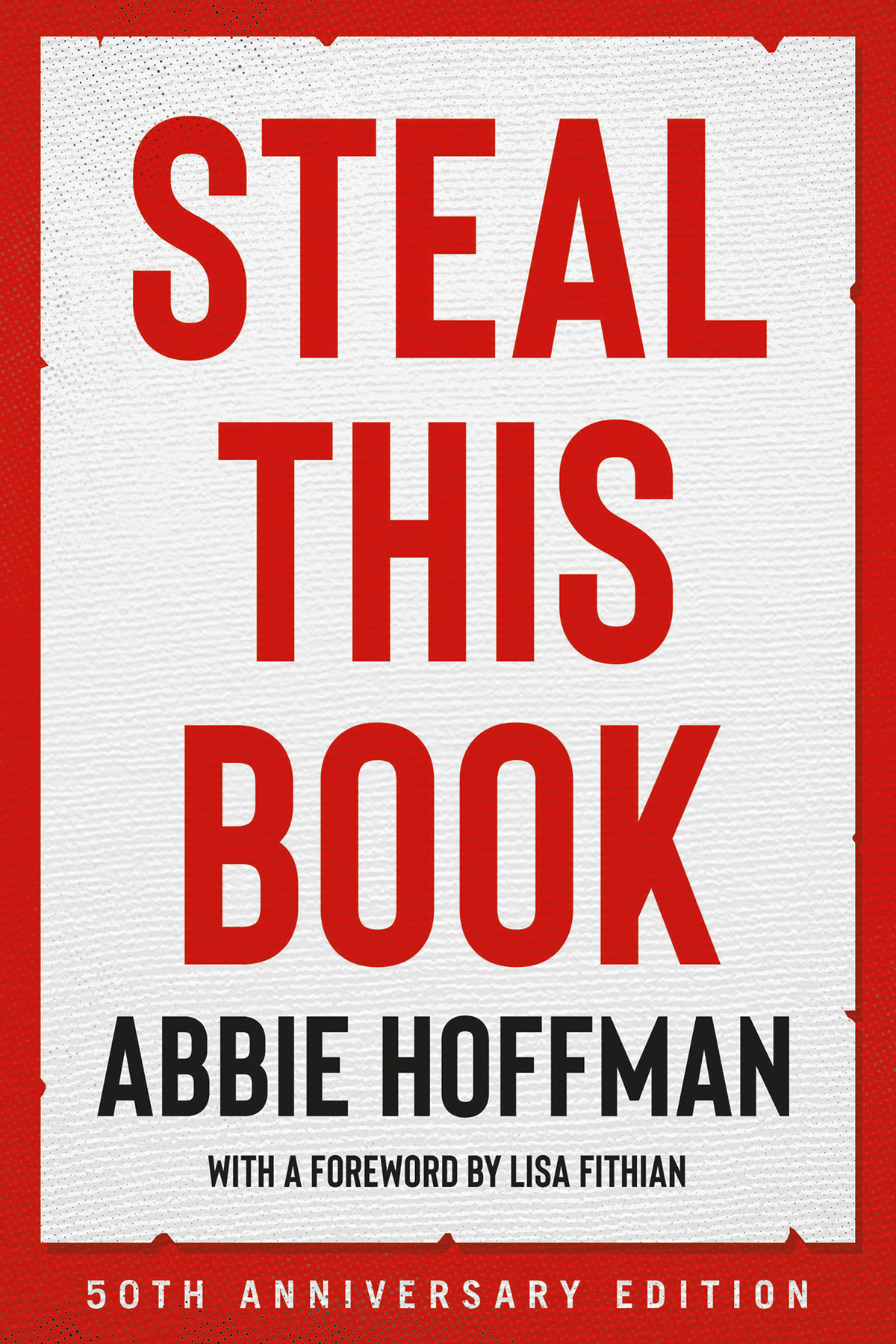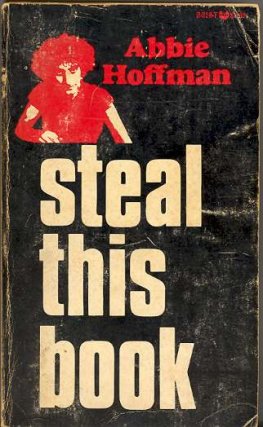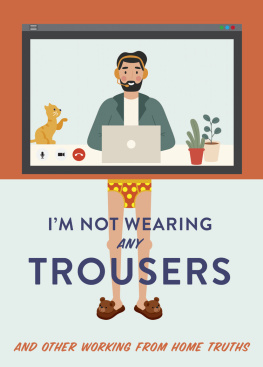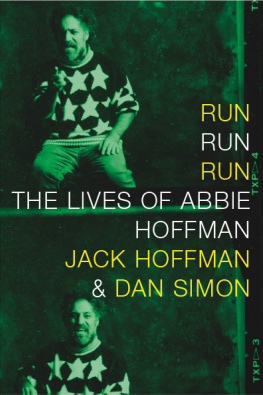
Copyright 1971 by Abbie Hoffman. Copyright renewed 1996 by Johanna Lawrenson, the Estate of Abbie Hoffman with special thanks to Eliot Katz
Foreword to the 2021 Edition 2021 Lisa Fithian
Introduction to the 2002 Edition 2002 Al Giordano
Cover design by Amanda Kain
Cover copyright 2021 by Hachette Book Group, Inc.
Hachette Book Group supports the right to free expression and the value of copyright. The purpose of copyright is to encourage writers and artists to produce the creative works that enrich our culture.
The scanning, uploading, and distribution of this book without permission is a theft of the authors intellectual property. If you would like permission to use material from the book (other than for review purposes), please contact permissions@hbgusa.com. Thank you for your support of the authors rights.
Hachette Go, an imprint of Hachette Books
Hachette Book Group
1290 Avenue of the Americas
New York, NY 10104
HachetteGo.com
Facebook.com/HachetteGo
Instagram.com/HachetteGo
Previously published by Da Capo Press: 2002
First Hachette Go Edition: September 2021
Hachette Books is a division of Hachette Book Group, Inc.
The Hachette Go and Hachette Books name and logos are trademarks of Hachette Book Group, Inc.
The publisher is not responsible for websites (or their content) that are not owned by the publisher.
Library of Congress Control Number: 2021940663
ISBNs: 9780306847172 (trade paperback); 9780306847189 (ebook)
E3-20210808-JV-NF-ORI
Fuck the System
Revolution for the Hell of It
Woodstock Nation
Vote!
(with Jerry Rubin and Ed Sanders)
To america with Love:
Letters from the Underground
(with Anita Hoffman)
The Autobiography of Abbie Hoffman
(formerly Soon To Be a Major Motion Picture)
Square Dancing in the Ice Age:
Underground Writings
Steal This Urine Test
(with Jonathan Silvers)
The Best of Abbie Hoffman
One of the most influential and recognizable American activists of the twentieth century, Abbie Hoffman was born in 1936 in Worcester, Massachusetts. After graduating from Brandeis University in 1959 with a degree in psychology, Hoffman became active in the civil rights movement of the early 1960s. Along with many others determined to make a difference, he traveled to Mississippi to help register voters. In New York City, he founded Liberty House, a crafts store that sold goods made by cooperatives in Mississippi.
In the mid-1960s, Hoffman became an organizer in both the growing U.S. counterculture and the anti-Vietnam War movement. In his autobiography, Hoffman wrote: A semistructure freak among the love children, I was determined to bring the hippie movement into a broader protest. With his unique political wit and humor, and his knowledge of televisions growing importance in shaping social awareness, Hoffman helped organize such memorable acts of 1960s protest as dropping dollar bills onto the New York Stock Exchange in April 1967, and levitating the Pentagon in October of that same year. In 1968, together with his then-wife Anita, Jerry Rubin, Nancy Kurshan, Paul Krassner, and others, Hoffman founded the Youth International Party (Yippies!) and began organizing a Festival of Life outside the Democratic Partys 1968 national convention in Chicago. Following what investigators later called a police riot, Hoffman and seven others (the Chicago 8) were put on trial in what became known as the Chicago Conspiracy Trialthe most important political trial of this century, according to the ACLU. According to the late peoples historian Howard Zinn, Abbie Hoffman holds a unique place in the history of our time. There was no one quite like him, no one who combined brilliant, zany wit with serious political purpose.
In 1973, Hoffman went underground, and using aliases like Barry Freed still managed to stay politically active, working successfully with his running mate Johanna Lawrenson on Save the River!a campaign which stopped the Army Corps of Engineers from dredging the St. Lawrence River for winter navigation. He emerged from the underground on national television in September of 1980 and continued his work, in his own words, as an American dissident and a community organizer throughout the 1980s. His projects included working with environmental groups throughout the Great Lakes and the Northeast, taking delegations to Central America to question American policies in the region, and opposing workplace drug testing in the U.S.
Student activists gained much from Hoffmans experiencethe veteran organizer dedicated considerable time and energy to passing along the skills he had developed. Arrested in 1986 with Amy Carter and other students at the University of Massachusetts while protesting CIA recruitment on campus, Hoffman yet again shaped a precedent-setting trial. Hoffman and the students successfully pleaded not guilty using the necessity defense, convincing a jury that their minor crime of trespass was needed to stop larger crimes of CIA covert actions in Central America and elsewhere. In his closing argument, Hoffman told the jury: I grew up with the idea that democracy is not something you believe in, or a place you hang your hat, but its something you do. You participate. If you stop doing it, democracy crumbles and falls apart. Young people, if you participate, the future is yours. Throughout the 80s, Hoffman traveled extensively across the country speaking on college campuses and was the major adviser for such activist groups as National Student Convention 88 (at Rutgers University) and Student Action Unionhelping student activists learn tools and strategies for building effective, democratically structured movements for social change.













 Delta
Delta